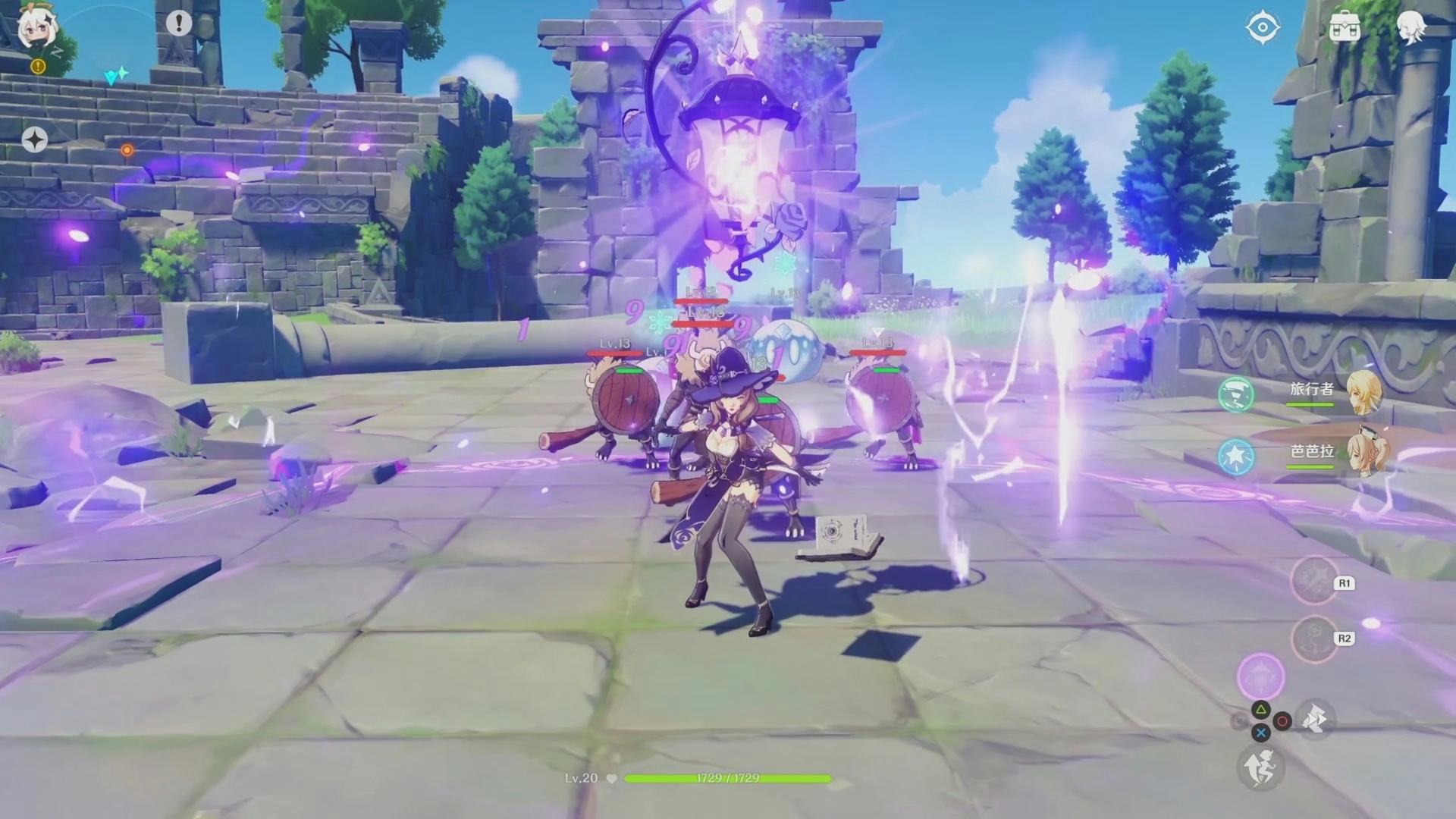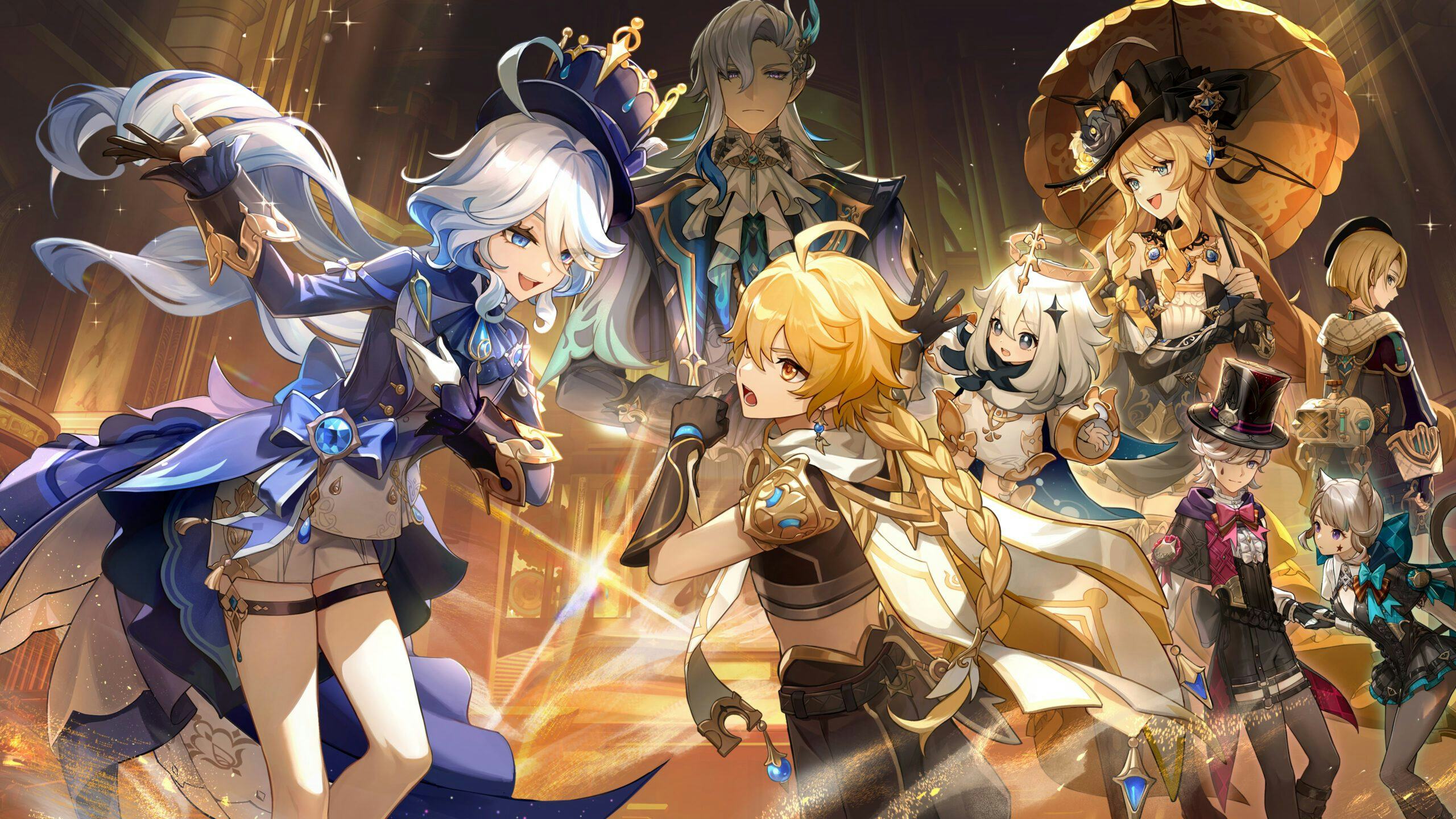
Gacha games are nothing new, having been around in some form for decades, but in recent years, there’s been an explosion of gacha-based RPGs reaching worldwide popularity in a way they’ve never done before. The reasons for this are numerous, but at least one of them is the incredible success of 2020’s Genshin Impact.
While it came years into the gacha craze, launching on September 28, 2020, Genshin Impact broke through to audiences that may never have touched a gacha game before, including those already published by its developer, HoYoverse. Its previous Honkai series games were successful throughout Asia, where mobile gacha games have a longer history, but Genshin Impact was a much bigger global hit. And while it might be easy to forget now, when Genshin Impact was first announced, it seemed like it would be anything but a success.
The first reveal of Genshin Impact came in 2019, and the immediate reaction from some observers was not excitement, but fury. The game’s announcement came just two years after The Legend of Zelda: Breath of the Wild launched, and it was hard to overlook the similarities between the two. Both are open-world RPGs set in sprawling worlds rendered in a colorful, cartoony art style. Genshin Impact even borrows some degree of the elemental interactions that Breath of the Wild introduced. That led to some attendees at the ChinaJoy convention where the reveal happened to begin impromptu protests, playing Breath of the Wild in front of the Sony booth where Genshin Impact was being displayed and giving the finger to the game’s demo. One Breath of the Wild fan went as far as to smash their PlayStation 4 in front of the booth.
After that initial outburst, the temperature cooled a bit on Genshin Impact’s reception, but not entirely. Leading up to its release, Genshin Impact was still derided to some degree as a rip-off of Breath of the Wild, undoubtedly driven by some amount of Sinophobia mixed with legitimate critiques of the game’s similarities. As the game drew closer, it also earned some criticism for its gacha mechanics, especially as it came during a period of increased awareness of the deceptiveness of in-game purchases like lootboxes, along with legislative attempts to regulate them.

Part of the uproar about gacha came simply from the type of game that Genshin Impact is. Its open-world design, high-fidelity art, and systems complexity give it all the hallmarks of a mainstream, AAA game. Gacha mechanics, however, were associated mostly with mobile titles that bear little resemblance to blockbuster RPGs. The mixing of those two worlds and the fact that Genshin Impact was such a high-profile release meant that many of its players were confronting gacha mechanics for the first time and didn’t like what they were seeing.
Despite that, Genshin Impact was a huge success when it launched. It received largely positive reviews, with critics lavishing praise on its art, world design, and combo-heavy combat system, which encourages strategically using attacks linked to multiple different elemental effects. It continued to draw criticism for its gacha mechanics, which slow down and limit progress for players unwilling to gamble with real money.
While gacha concerns are no longer at the center of players’ minds, Genshin Impact has continued to be a controversial game. It’s gotten plenty of criticism for failing to include characters of color, even when its story is centered on regions inspired by Africa and Latin America. The calls for representation got so loud that even the game’s voice actors began expressing their dissatisfaction.

Whatever concerns some players may have with the game, Genshin Impact has not only continued its own success, but also been followed by a wave of other big-budget gacha games getting global releases. HoYoverse itself released Honkai Star Rail to positive reviews, and recently announced two more games, including an upcoming life sim with at least as much in common with Animal Crossing as Genshin Impact has with Breath of the Wild. Other recent hits like Wuthering Waves have continued the trend of gacha-based action RPGs finding worldwide success. Even much different titles like Umamusume may have found a bigger audience thanks to the likes of Genshin Impact laying the groundwork for their understanding of gacha gaming.
A game with gambling at its core will always be controversial, and there are plenty of legitimate reasons to avoid or criticize Genshin Impact. What’s unavoidable, though, is its importance to what gaming looks like right now. Chinese developers are finding worldwide success in a way that was rare just a few years ago, and free-to-play games are taking on bigger risks and finding audiences to match. That can’t all be attributed to Genshin Impact, but this game that was once derided as a rip-off has become a vanguard for some massive changes in the games industry. For better or worse, Genshin Impact has made its mark and raised the bar for what players expect from free-to-play games.







